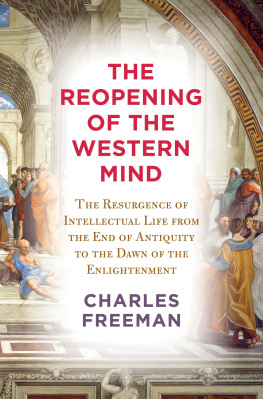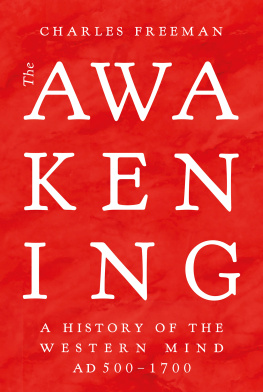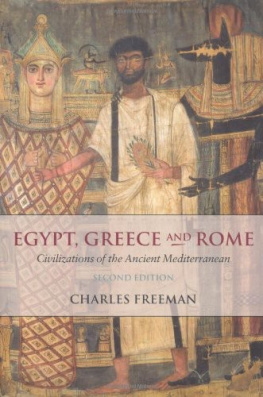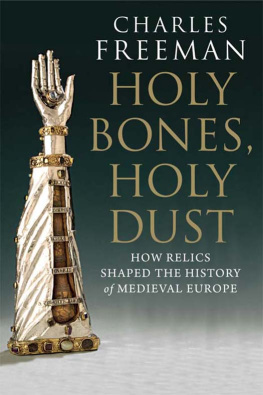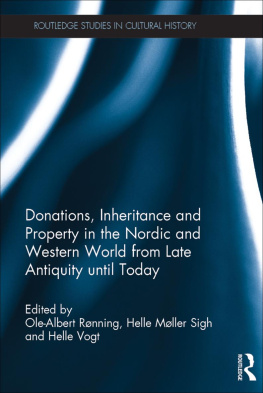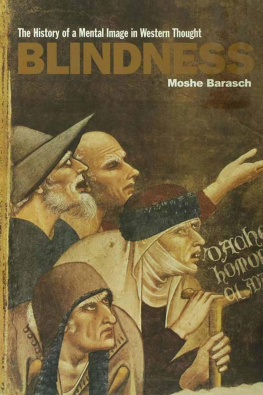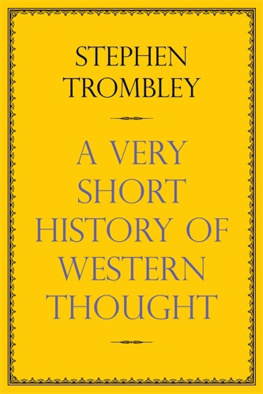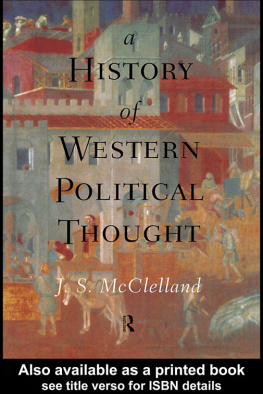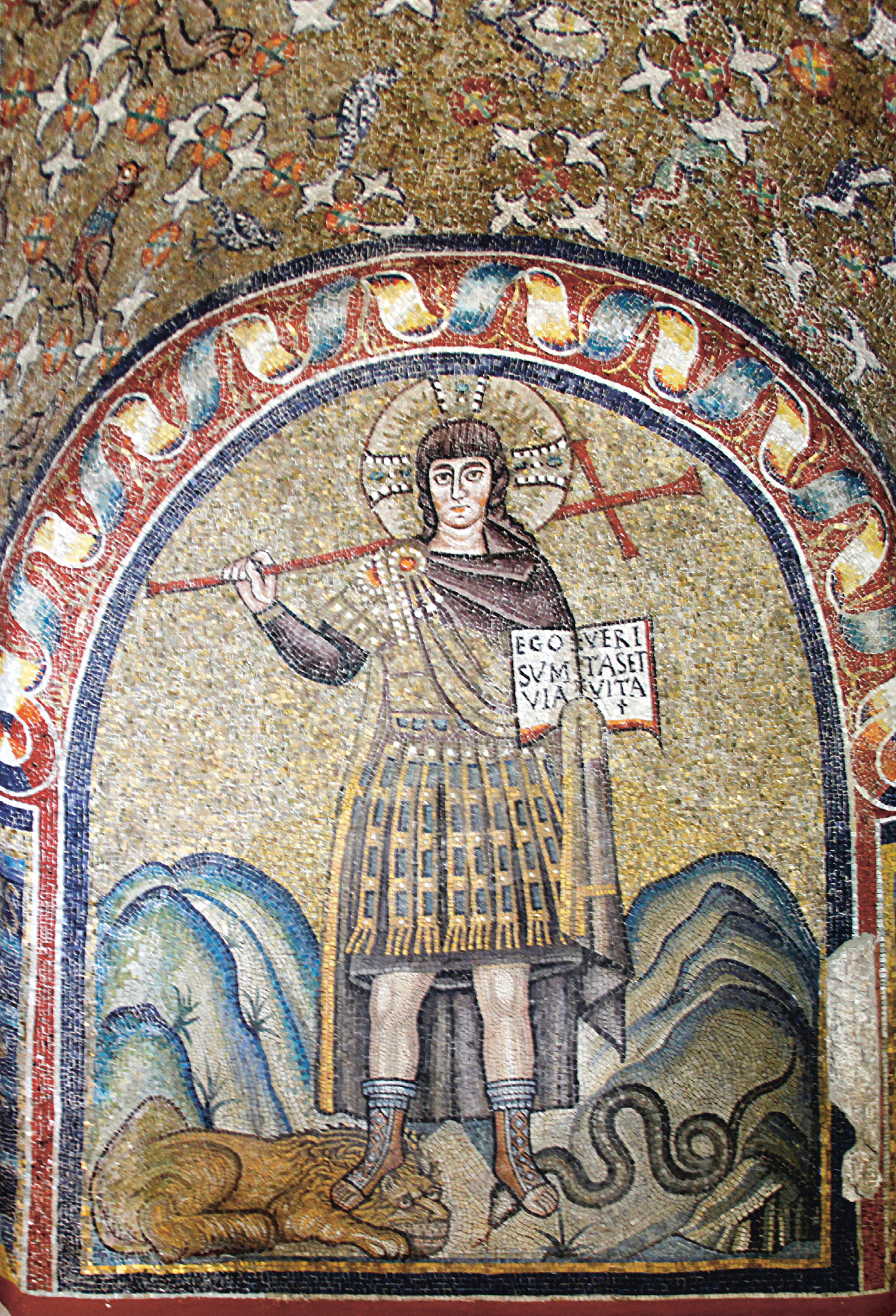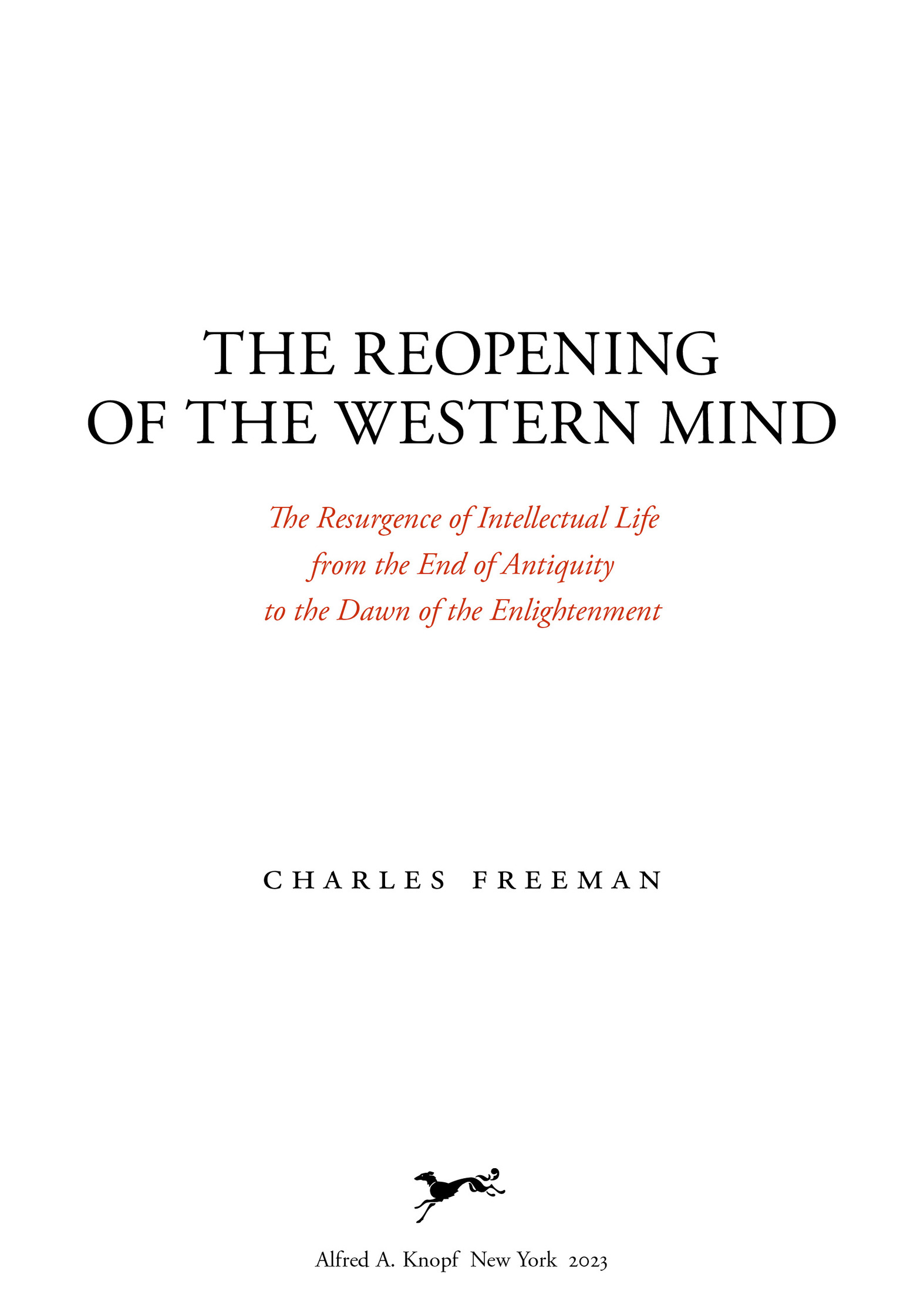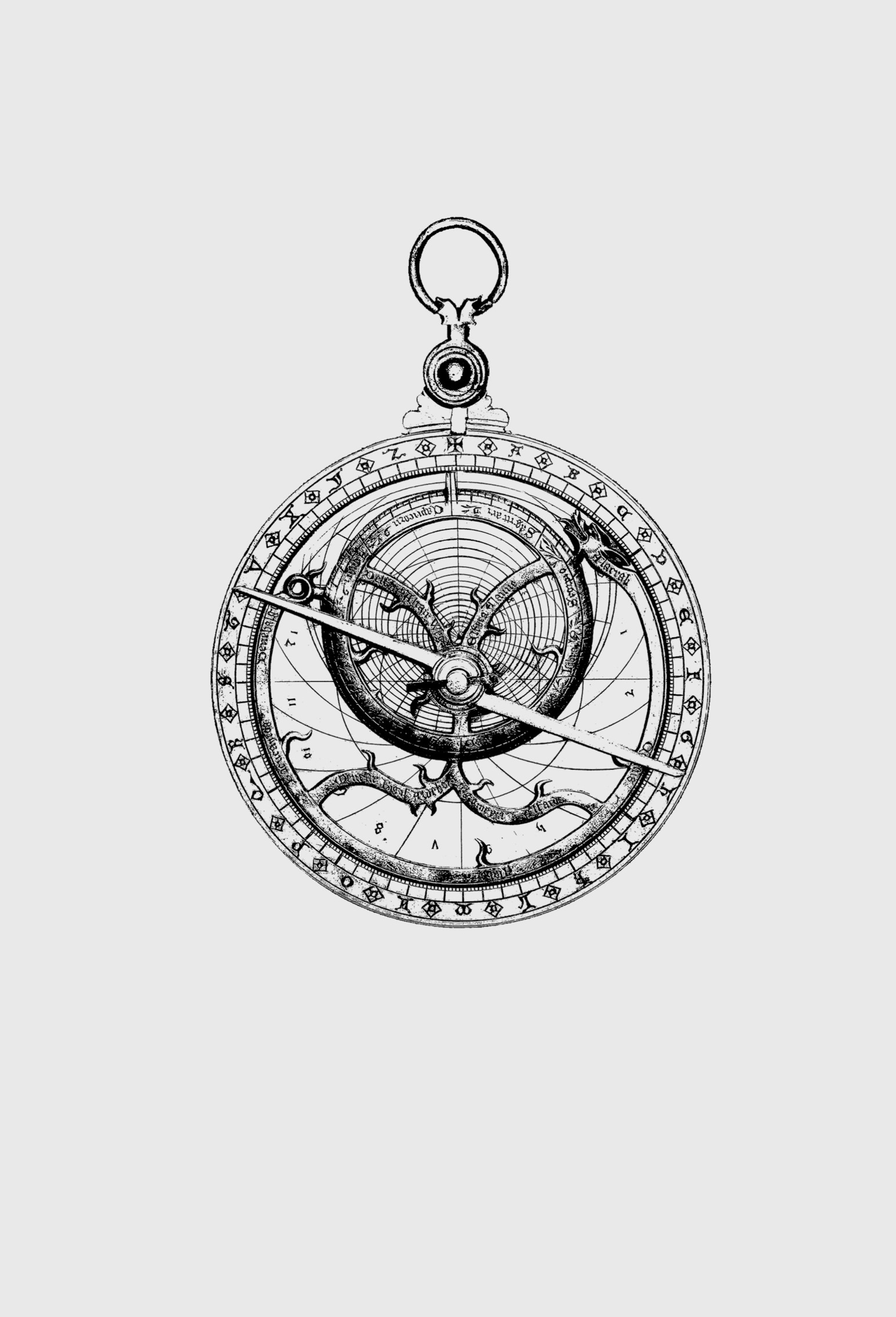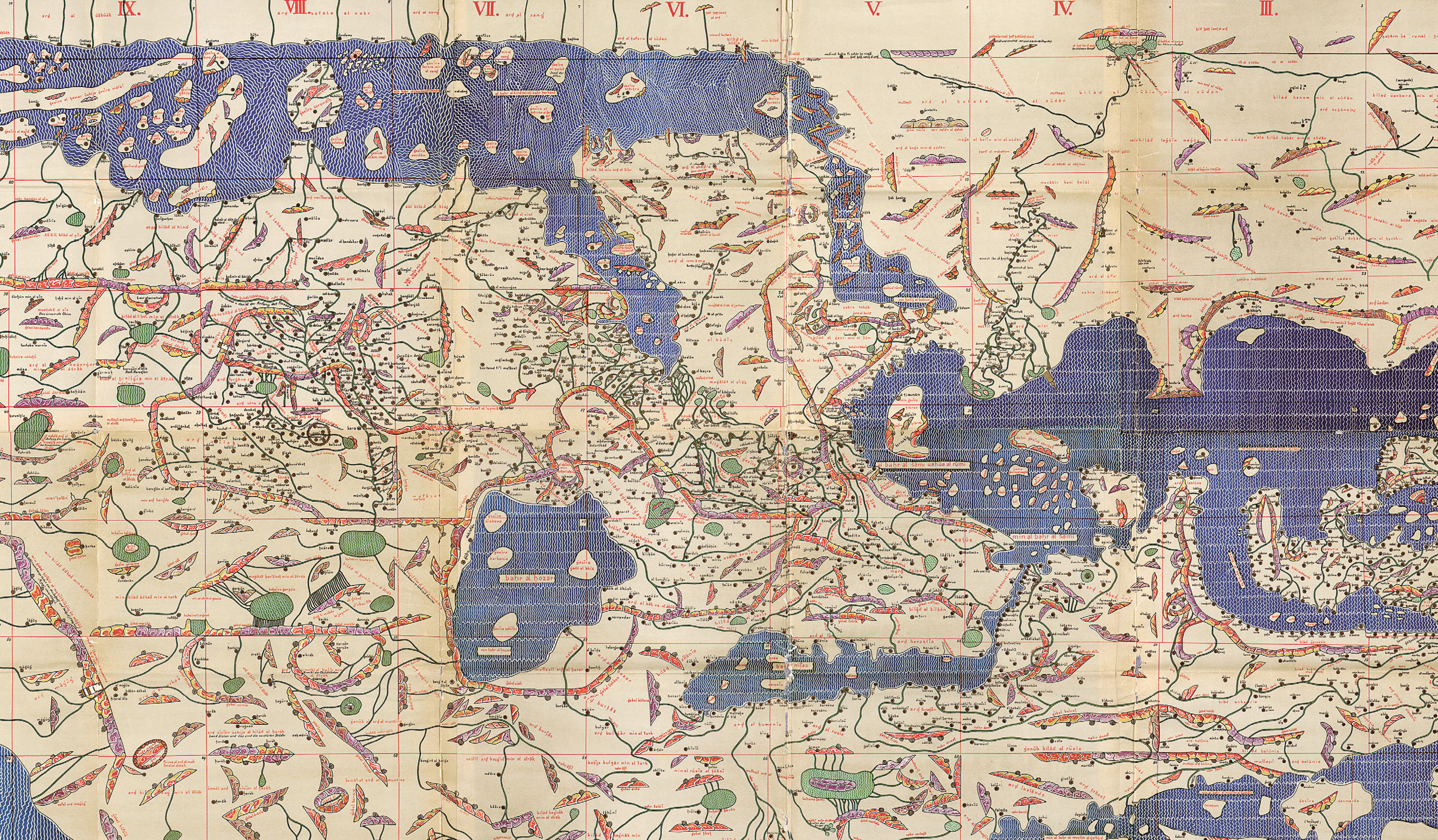Charles Freeman - The Reopening of the Western Mind: The Resurgence of Intellectual Life from the End of Antiquity to the Dawn of the Enlightenment
Here you can read online Charles Freeman - The Reopening of the Western Mind: The Resurgence of Intellectual Life from the End of Antiquity to the Dawn of the Enlightenment full text of the book (entire story) in english for free. Download pdf and epub, get meaning, cover and reviews about this ebook. City: New York, year: 2023, publisher: Knopf, genre: History. Description of the work, (preface) as well as reviews are available. Best literature library LitArk.com created for fans of good reading and offers a wide selection of genres:
Romance novel
Science fiction
Adventure
Detective
Science
History
Home and family
Prose
Art
Politics
Computer
Non-fiction
Religion
Business
Children
Humor
Choose a favorite category and find really read worthwhile books. Enjoy immersion in the world of imagination, feel the emotions of the characters or learn something new for yourself, make an fascinating discovery.
- Book:The Reopening of the Western Mind: The Resurgence of Intellectual Life from the End of Antiquity to the Dawn of the Enlightenment
- Author:
- Publisher:Knopf
- Genre:
- Year:2023
- City:New York
- Rating:3 / 5
- Favourites:Add to favourites
- Your mark:
The Reopening of the Western Mind: The Resurgence of Intellectual Life from the End of Antiquity to the Dawn of the Enlightenment: summary, description and annotation
We offer to read an annotation, description, summary or preface (depends on what the author of the book "The Reopening of the Western Mind: The Resurgence of Intellectual Life from the End of Antiquity to the Dawn of the Enlightenment" wrote himself). If you haven't found the necessary information about the book — write in the comments, we will try to find it.
Charles Freeman, lauded historical scholar and author of The Closing of the Western Mind (A triumphThe Times [London]), explores the rebirth of Western thought in the centuries that followed the demise of the classical era. As the dominance of Christian teachings gradually subsided over time, a new open-mindedness made way for the ideas of morality and theology, and fueled and formed the backbone of the Western mind of the late Middle Ages, the Renaissance, and beyond.
In this wide-ranging history, Freeman follows the immense intellectual development that culminated in the Enlightenment, from political ideology to philosophy and theology, as well as the fine arts and literature. He writes, in vivid detail, of how Europeans progressed from the Christian-minded thinking of Saint Augustine to the more open-minded later scholars, such as Michel de Montaigne, leading to a broader, more humanist way of thinking.
He explores how the discovery of America fundamentally altered European conceptions of humanity, religion, and science; how the rise of Protestantism and the Reformation profoundly influenced the tenor of politics and legal systems, with enormous repercussions; and how the radical Christianity of philosophers such as Spinoza affected a rethinking of the concept of religious tolerance that has influenced the modern era ever since.
Charles Freeman: author's other books
Who wrote The Reopening of the Western Mind: The Resurgence of Intellectual Life from the End of Antiquity to the Dawn of the Enlightenment? Find out the surname, the name of the author of the book and a list of all author's works by series.

